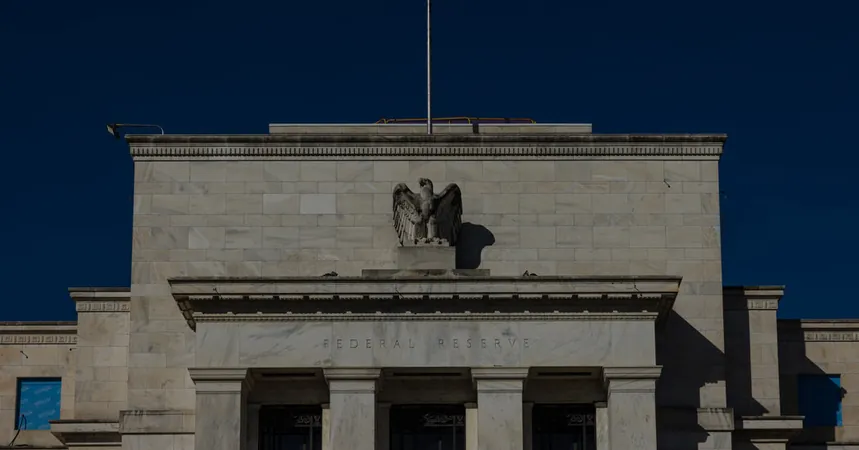
Shocking Move: Federal Reserve Pulls Out of Climate Risk Network Just Before Trump’s Return!
2025-01-17
Author: Chun
In a surprising turn of events, the Federal Reserve has announced its withdrawal from a prominent global network focused on climate risk, just days before President-elect Donald J. Trump steps back into office. This withdrawal marks a significant shift in the Fed's approach to climate-related financial issues, following a brief period of engagement that began when President Biden was elected.
The NGFS and Its Role
Formed to facilitate the exchange of research and ideas among central banks, the Network of Central Banks and Supervisors for Greening the Financial System (NGFS) aims to mobilize mainstream finance for a sustainable economy. The network’s initiatives came under scrutiny from Republicans, who raised concerns that an increased focus on climate risk could hinder access to capital for vital industries and negatively impact American consumers.
Official Statement and Reasons for Withdrawal
The Federal Reserve's official statement indicated that the decision to disengage stemmed from a broadening of the network's mission, which has expanded beyond the core responsibilities defined for the Fed. “While the Board has appreciated the engagement with the NGFS and its members, the work has increasingly covered a wider range of issues that are outside of our statutory mandate,” the central bank conveyed.
Board Dynamics
The vote to withdraw was not unanimous; five members of the Fed’s Board of Governors—a group led by Chair Jerome H. Powell—supported the move, while two members, Adriana Kugler and Michael Barr, abstained. This is particularly noteworthy as Barr recently announced his impending resignation as vice chair for supervision.
Previous Engagement with NGFS
The Fed’s earlier decision to join the NGFS had been seen as a recognition of the growing importance of climate risks, especially as extreme weather events become more frequent and impactful on the financial sector. Prior to joining officially, the Fed had participated informally in the network for over a year, indicating a shift in recognition of climate's relevance to financial stability.
Republican Concerns
Just before the Fed's official membership, several Republican lawmakers expressed their apprehensions regarding the network. They warned that any recommendations from the NGFS might severely restrict access to funding for critical sectors of the economy, thus exacerbating the challenges faced by businesses in an increasingly competitive global landscape.
Looking Ahead
As the political landscape shifts again with Trump’s presidency, eyes will be on how the Federal Reserve reevaluates its strategies concerning climate risk and whether it will proceed to navigate the complex terrain of financial regulation without the guidance of international peers focusing on sustainability. What impact will this decision have on the future of American finance and environmental responsibility? Stay tuned!



 Brasil (PT)
Brasil (PT)
 Canada (EN)
Canada (EN)
 Chile (ES)
Chile (ES)
 Česko (CS)
Česko (CS)
 대한민국 (KO)
대한민국 (KO)
 España (ES)
España (ES)
 France (FR)
France (FR)
 Hong Kong (EN)
Hong Kong (EN)
 Italia (IT)
Italia (IT)
 日本 (JA)
日本 (JA)
 Magyarország (HU)
Magyarország (HU)
 Norge (NO)
Norge (NO)
 Polska (PL)
Polska (PL)
 Schweiz (DE)
Schweiz (DE)
 Singapore (EN)
Singapore (EN)
 Sverige (SV)
Sverige (SV)
 Suomi (FI)
Suomi (FI)
 Türkiye (TR)
Türkiye (TR)
 الإمارات العربية المتحدة (AR)
الإمارات العربية المتحدة (AR)